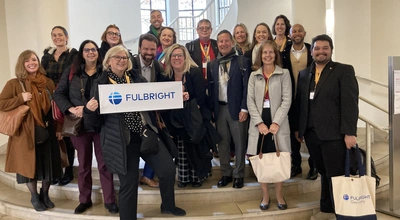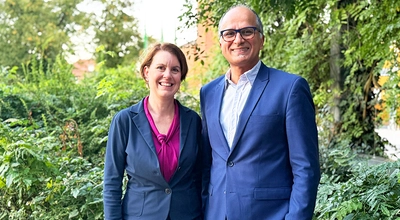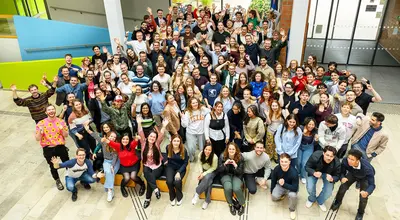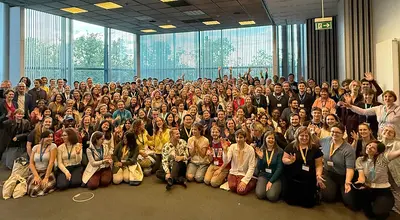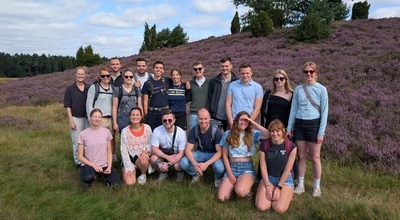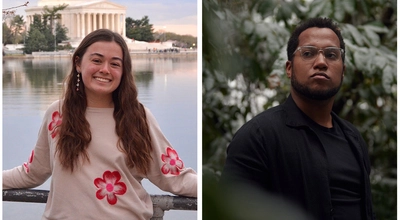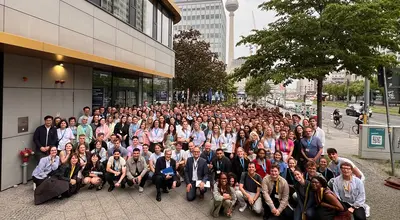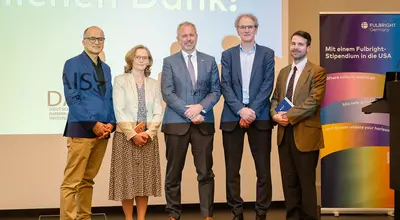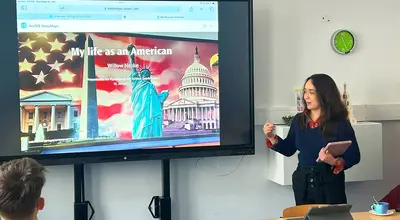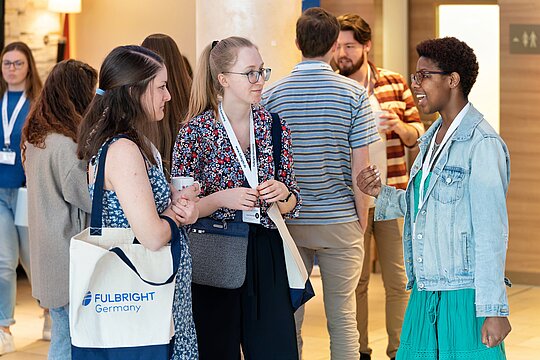
About Fulbright Germany
The German-American Fulbright Commission (Fulbright Germany) facilitates academic exchange between the US and Germany. Fulbright Germany awards up to 700 scholarships yearly for study, research, teaching, and continuing education in the US and Germany, thus actively promoting transatlantic dialogue.
Our Mission
Fulbright Germany facilitates connections, mutual learning and dialogue among students, scholars, educators, artists and professionals in the US and Germany.
We champion the power of the Fulbright experience to nurture and enable human potential. Through their Fulbright experience, our grantees and alumni gain empathy, resilience, and courage, as they discover and embark on new paths to advance knowledge and effect positive change in our societies and the world.
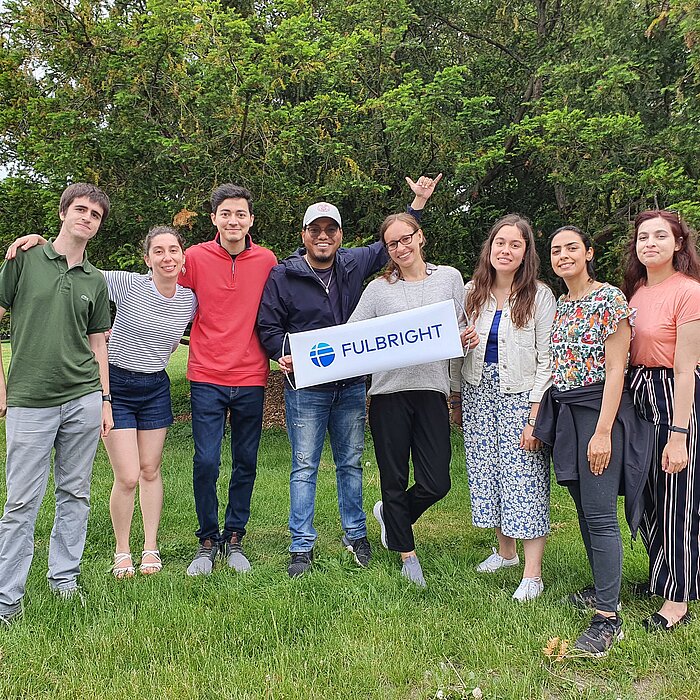

Our Vision
Our goal is to develop new and mutually compatible models of academic excellence and sustainable international mobility, working closely with our governing Board and funders, the German and global Fulbright community, and partners who share our goals and values.
Our Values
We believe steadfastly in the irreplaceable value of face-to-face cultural encounters and affirm the enduring importance of mutual understanding, learning and cooperation between the US and Germany.
We are committed to awarding our scholarships on the basis of merit to students and early-career scholars from across the social spectrum who are committed to academic and cultural exchange between the US and Germany. Providing equal opportunity and promoting educational equality are highly valued at Fulbright Germany, which thus encourages applications from first-generation students and self-financing young academics, and those who have not had an opportunity to learn and live in the US or Germany.

One Fulbright Community
Alumni of Fulbright Germany’s programs appreciate cultural differences while embracing our common humanity and shared challenges. The alumni of our programs—the "Fulbrighters”—carry the spirit of cross-cultural understanding to their communities and professional networks, expanding the scope of German-American dialogue and sustaining transatlantic cooperation in our evolving societies and a changing world. Together, Fulbright alumni work with the Commission, the Fulbright Alumni e.V. and the Association of Fulbright’s Friends and Sponsors (VFF), and other partners to actively advance solutions to societal and global challenges.
About the Fulbright Program
The Fulbright Program was initiated by US Senator James William Fulbright (*1905, †1995) to promote mutual understanding between the US and partner countries around the world through academic and cultural exchange, according to the motto: "We turn nations into people".
A few key figures
Today, more than 160 partner countries participate in the worldwide Fulbright exchange, including Germany which joined in 1952. In nearly 50 partner countries permanent Fulbright Commissions, along with Fulbright Germany in Berlin, organize exchange with the US. To date, Fulbright Germany has supported more than 40,000 Germans and Americans. With up to 700 scholarships annually for study, research, teaching, and continuing education in the US and Germany, Fulbright Germany actively advances dialogue between the two countries. Each year, around 8,000 US and international scholars participate in the global Fulbright exchange program. Since its inception in 1946, more than 400,000 scholars have been sponsored, 62 of whom later received the Nobel Prize and 98 the Pulitzer Prize.
Our commitment
Reflecting global and societal changes since its establishment in 1952, Fulbright Germany is committed to ensuring that participants in our programs reflect the broad range of educational, scholarly, and professional excellence in our societies.


